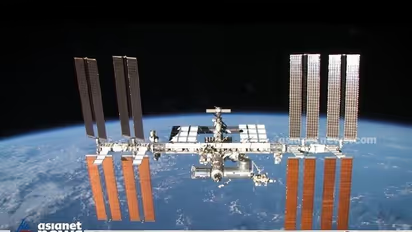Russia to stay with the International Space Station till 2028

Synopsis
The most recent signs suggest that Russia is still at least six years away from concluding an orbital partnership with the United States that spans more than two decades when combined with comments made by a top Russian space official that were published on Wednesday.
Moscow has notified its American counterparts that it would prefer to continue sending its cosmonauts to the ISS until its own orbiting station is completed and ready for use, according to a senior NASA official. The most recent signs suggest that Russia is still at least six years away from concluding an orbital partnership with the United States that spans more than two decades when combined with comments made by a top Russian space official that were published on Wednesday.
On Tuesday, Yuri Borisov, the recently appointed director-general of Russia's space agency Roscosmos, stunned NASA by saying that Moscow wanted to withdraw from the space station alliance "after 2024."
As Russia works to establish its intended orbiting outpost, known as ROSS, up and running, Russian officials later on Tuesday informed the U.S. space agency that Roscosmos wants to continue in the collaboration, according to Kathy Lueders, NASA's space operations head. At any working level, "We're not receiving any indication that anything's changed," Lueders told Reuters on Wednesday, adding that things are still "business as usual" between NASA and Roscosmos.
Also Read | Russia to exit International Space Station in 2024, build its own
The space station, a football field-sized scientific lab that orbits about 250 miles (400 km) above Earth, has been continuously manned for more than 20 years by a collaboration led by the United States and Russia that also includes Canada, Japan, and 11 European nations.
Although its survival has been questioned since Russia's invasion of Ukraine in February, which strained bilateral ties on a number of fronts as the Biden administration placed economic sanctions on Moscow, it represents one of the last traces of collaboration between the United States and Russia. Tensions between Roscosmos and the European Space Agency were also provoked by the war in Ukraine.
Beyond 2024, there has not yet been a formal agreement to continue Russia's involvement in the ISS. During a regular meeting of the board that governs the management of the station on Friday, NASA, Roscosmos, ESA, and the station's other partners want to explore the possibility of extending each other's tenure on the laboratory beyond 2030, Lueders said. The flight director for the Russian part of the space station, Vladimir Solovyov, was quoted in an interview that Roscosmos posted online on Wednesday as saying that Russia must stay on the station until ROSS is operational.
Also Read: 'Mystery rocket' that crashed into the Moon cause 'double crater': NASA
Because the American and Russian portions of the space station are interconnected and technically dependent on one another, any abrupt termination of Russian collaboration on the ISS may significantly jeopardise a key component of NASA's human spaceflight programme.